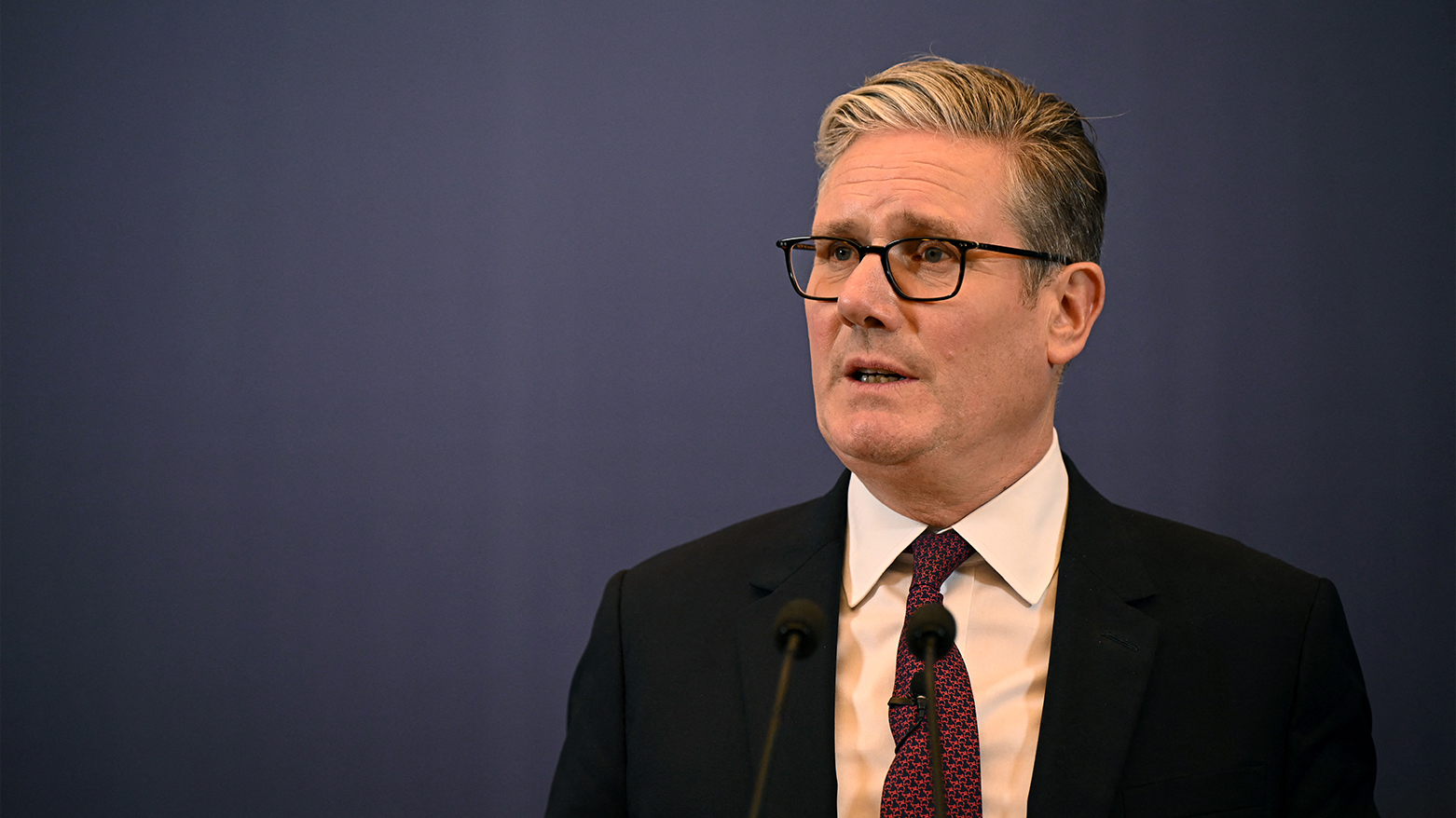
Azad Jndyani
Author
An Open Letter to PM Starmer of the UK

Translated by: Sardar Star
On September 24, British Prime Minister Keir Starmer published an op-ed in the Arabic-language newspaper Asharq Al-Awsat, apparently tailored for a broad Arab audience to justify the UK’s formal recognition of a Palestinian state. As part of his rationale for a two-state solution, Starmer wrote that the decision invoked “echoes of history and the commitment of our ancestors.” This was a clear reference to the 1917 Balfour Declaration, in which the British government announced its support for the establishment of a "national home for the Jewish people.”
To understand the matter, it is helpful to take a few steps back.
For centuries, the British Empire was famously known as the one “where the sun never sets.” However, the economic and military costs of the two World Wars significantly weakened Britain, accelerating the decolonization process and granting some of their colonies independence. Following this bold decision, in 1948, the newly formed United Nations addressed the issue and approved the “Partition Plan.” Once translated into action, it divided the territory into separate Arab and Jewish states.
The Jewish leadership swiftly approved the plan and declared the establishment of the State of Israel. On the other side of the new border, however, the Palestinians—emboldened by the Arab states of the time—rejected the proposed partition. This decision ultimately sparked a conflict that continues to challenge the stability of the region to this day, with no sustainable solution on the horizon. It must be noted that Palestine was first freed from the Ottoman occupation and put under the British Mandate until it was divided in 1948 by the Partition Plan. Despite every effort that was made during the past few decades, the skirmish continues under what is known in the political literature as “The Arab-Israeli Conflict.”
Back to the present day, Prime Minister Starmer has joined the initiative led by France and Saudi Arabia to advance the ‘Two-State Solution’ through the formal recognition of Palestine as a state. With all that said, it is important to remind the British Prime Minister, policymakers, the political elite, and even the Kurdish people across all four divided parts of Kurdistan of a few key takeaways.
First, Britain appears to be adopting a new vision by revisiting its historical promises, particularly to the nations it formerly colonized. If this is the case, the Kurds must mobilize a decisive, global effort—spanning diplomatic lobbying, academic research, national fronts, and civic movements. The goal is to remind Britain that if it is serious about fulfilling historical promises, it also has a pledge to the Kurds to honor. The world must be reminded of the commitments made to the Kurds in the Treaty of Sèvres, as well as the promises Britain and France made to nations freed from the Ottoman Empire. The Kurdish question is a strong national cause today that demands an effective solution and deserves the same consideration as the Palestinian issue, of course with no further delay.
Second, the modern Kurdish issue can be traced through a series of post-World War I agreements. The timeline runs from the notorious Sykes-Picot Agreement (1916) and the Treaty of Sèvres (1920) to the decisive Treaty of Lausanne (1923). It was in Lausanne that Britain, France, and the newly established Republic of Turkey, with the backing of the League of Nations, delivered a devastating blow by depriving the Kurds of their right to statehood. This decision has hindered the Kurdish cause from gaining full international recognition to this day. However, it is worth noting that towards the end of the WWII, the Soviet Union supported the establishment of the Republic of Kurdistan in Mahabad, which it abandoned only after eleven months in order to save its own interests. Since then, with the passing of almost a century, the Kurdish question remains an unsolved puzzle while the Palestinian issue is being addressed after only 77 years.
One reason the Palestinian issue is prioritized over the Kurdish cause is the vast international support for Palestinian sovereignty. The cause is endorsed by more than 20 Arab states, most Muslim nations, and countries far beyond the Middle East, establishing it as both a regional and an international concern. In contrast, the four states governing Kurdistan—along with world powers like the UK and the broader Arab and Muslim world—refuse to recognize the Kurdish issue as a matter of an occupied nation, let alone support the Kurds' right to statehood in the homeland where they have lived for millennia. If the modern heirs of Britain wish to fulfill the pledges of their predecessors, they must avoid applying double standards in their foreign policy. It is fair to say that if the Palestinians deserve statehood, so do the Kurds. If recognizing a Palestinian state in 2025 is the right move in principle, why was the same principle not applied in 2017 when the Kurds overwhelmingly voted for independence in a democratic referendum? Why were double standards applied back then, not only by refusing to accept the results but by rejecting the Kurds' right to express their will, and following it with a shameful collective punishment?
Third, the recognition of Palestine is being framed as a necessary response to a 77-year humanitarian crisis and violence between Arabs and Israelis. If this is the principle guiding the UK and its partners, then Prime Minister Starmer must be asked if his government has ever commissioned a statistical comparison of the human costs in Palestine versus those in Kurdistan. The scale of atrocities against the Kurds—including 182,000 deaths in the Anfal genocide and 5,000 in the Halabja chemical attack— stand as a condemnation of the international community's negligence of the Kurdish cause.
Therefore, if saving lives in Gaza is the justification for a bold move like recognizing the state of Palestine, why wasn't the same principle applied when Kurds were being gassed in Halabja or buried alive in the deserts of southern Iraq? Why was it not applied when they were massacred in Dersim, Turkey, hanged by Iran's execution machine of Judge Khalkhali, or killed in cold blood by the Assad regime in Qamishli, Syria? These were all civilians, killed for the same crime—being Kurdish.
However, what was mentioned was a drop from a vast ocean of horrific crimes committed against the Kurds by those who occupy their lands. Therefore, I reserve the right for the Kurds to ask PM Starmer and all British policymakers if they are really not aware of the countless genocides and massacres against the Kurds?! If they are not aware, we raise the question why? If they are aware, we would ask why they choose to remain indifferent? The questions are specifically relevant because Britain, since the early days, share the responsibility for the policies that led to the division and occupation of a land that has been inhabited by the Kurds for thousands of years.
Fourth, while many other arguments could be made regarding the UK’s recognition of a Palestinian state at this time, the points above should be enough to remind Prime Minister Starmer of the promises his predecessors made to the Kurds, and then chose to forget. This is especially relevant since the Prime Minister himself made it clear in his Asharq Al-Awsat op-ed that revisiting historical commitments is possible, particularly when neglecting them has proven to be a bloody mistake.
Mr. Prime Minister, the Kurds were once divided under your country's watch. It is time for the UK to correct the course of history for a people who see Britain as a friend, not a foe.
As a final word, it is important to note that the Kurds are not unhappy to see progress on the Palestinian issue, though only time will tell if it proves successful. I will be honest: I envy the Palestinians for finally having their right to statehood recognized, at least on a rhetorical and theoretical level. The Palestinians have nations standing behind them, but when it comes to their own right to a state, the Kurds find themselves alone, with their only friend being the mountains.
The views expressed in this article are those of the author and do not necessarily reflect the views of Kurdistan24.